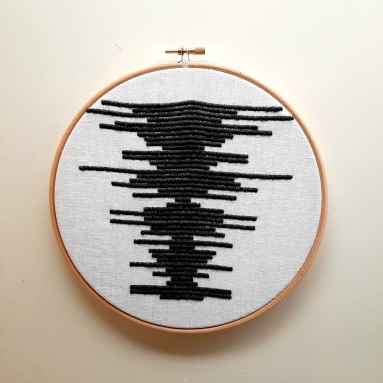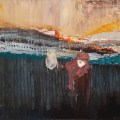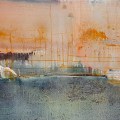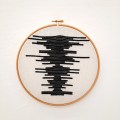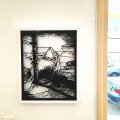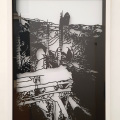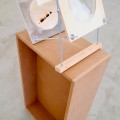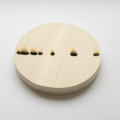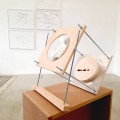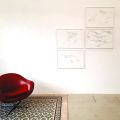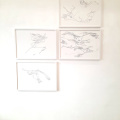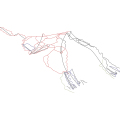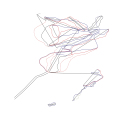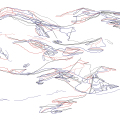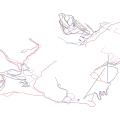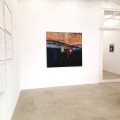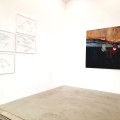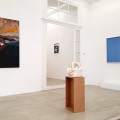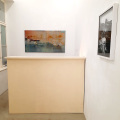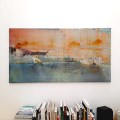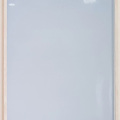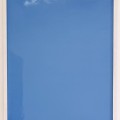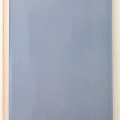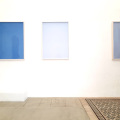05.05. - 25.06.2021
Ulrike Königshofer, Catherine Ludwig, Astrid Rausch
Great Acceleration
Seitdem der Mensch begonnen hat, sich von der Natur zu entfremden anstatt sich als ein Teil von ihr zu begreifen, befinden wir uns im Zeitalter des Anthropozäns und erleben immer deutlicher die drastischen Auswirkungen. Der Mensch ist spätestens seit der Industriellen Revolution zu einem umweltverändernden Faktor geworden, seit den 1950er Jahren gilt er durch die „Große Beschleunigung“ als der bestimmende Faktor für den Zustand des globalen Ökosystems.
Die Emanzipation mittels Kultur von der Natur und ihren Zwängen hat ihren Ursprung in der Aufklärung. Die Natur wurde zum Objekt der imperialen Eroberung, Beherrschung und Nutzung durch den Menschen. Man entdeckte ihr Wirtschaftskapital, das scheinbar unerschöpflich und kostenfrei zur Verfügung stand, um kurzfristig Profit zu schlagen. „Nach uns die Sintflut“, schrieb Marx im ersten Band seines Kapitals, „Après moi le déluge! ist der Wahlruf jedes Kapitalisten und jeder Kapitalistennation.“
Kultur und Freizeit gehören zu den global treibenden Wirtschaftsfaktoren. Tourismus, der seine Identität aus der romantischen Sehnsucht nach einer unberührten Natur bezieht, zerstört durch Masse und Billigstangebote noch ihre letzten Reste. Kann es einen nachhaltigen Tourismus geben, der im Einklang mit Naturerhaltung steht?
Dass der Eingriff in die Umwelt für den Menschen nicht ohne Konsequenzen bleibt, zeigt die Klimakrise. Umweltkatastrophen und extreme Wetterlagen kosten die Weltgemeinschaft nicht nur Milliarden, sondern auch Menschenleben. Die Corona-Pandemie hat in aller Drastik deutlich gemacht, wie das menschliche Vordringen in die Natur deren Gleichgewicht stört und die Wahrscheinlichkeit von Epidemien erhöht.
Kunst, wie etwa von Catherine Ludwig, Ulrike Königshofer und Astrid Rausch, kann auf die hochaktuellen Probleme der ökologischen Krise reagieren, indem sie die komplexen Folgen mehr oder weniger konkret visualisiert, auf einer emotionalen Ebene verdeutlicht und zur Schaffung beziehungsweise Findung neuer Werte im Umgang mit der Natur anregt. (Liisa Hättasch)
Ever since human beings began to alienate themselves from nature instead of seeing themselves as part of it, we have been in the age of the Anthropocene, with its drastic effects becoming more and more apparent over time. Humans have been a major factor in environmental change since at least the Industrial Revolution, and since the 1950s the "Great Acceleration" has made them the determining factor for the state of the global ecosystem.
UPCOMING:
TINA RIBARITS. Electric Entity
Getreidemarkt 14
A-1010 Wien / Austria
office[a]agnesreinthaler.com
Sign up for the gallery newsletter
Please note that we are not accepting unsolicited artist submissions.
UID: ATU66256008
FN 357375b

